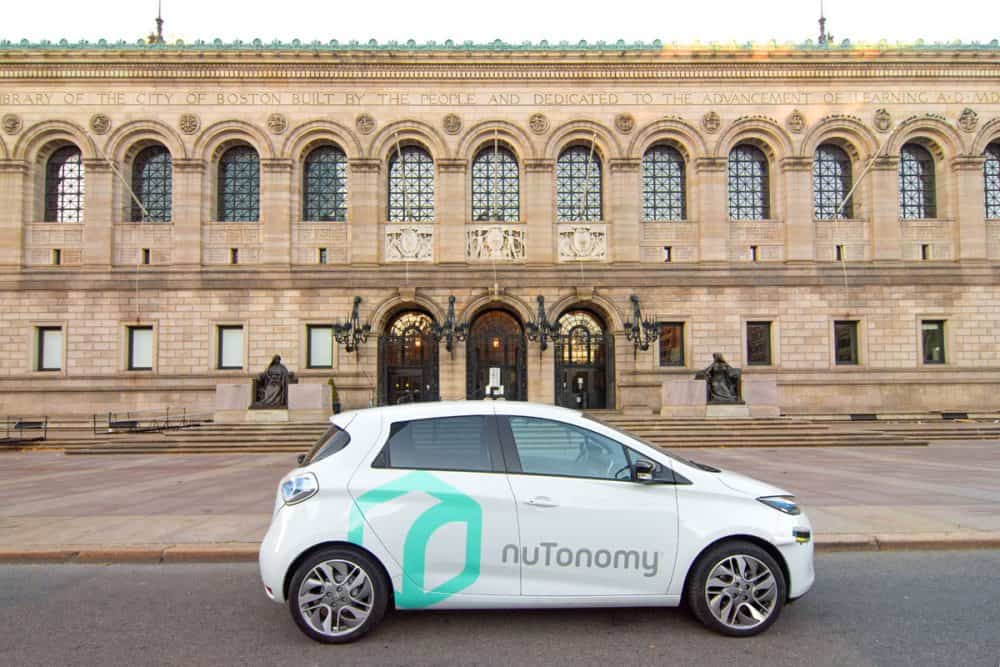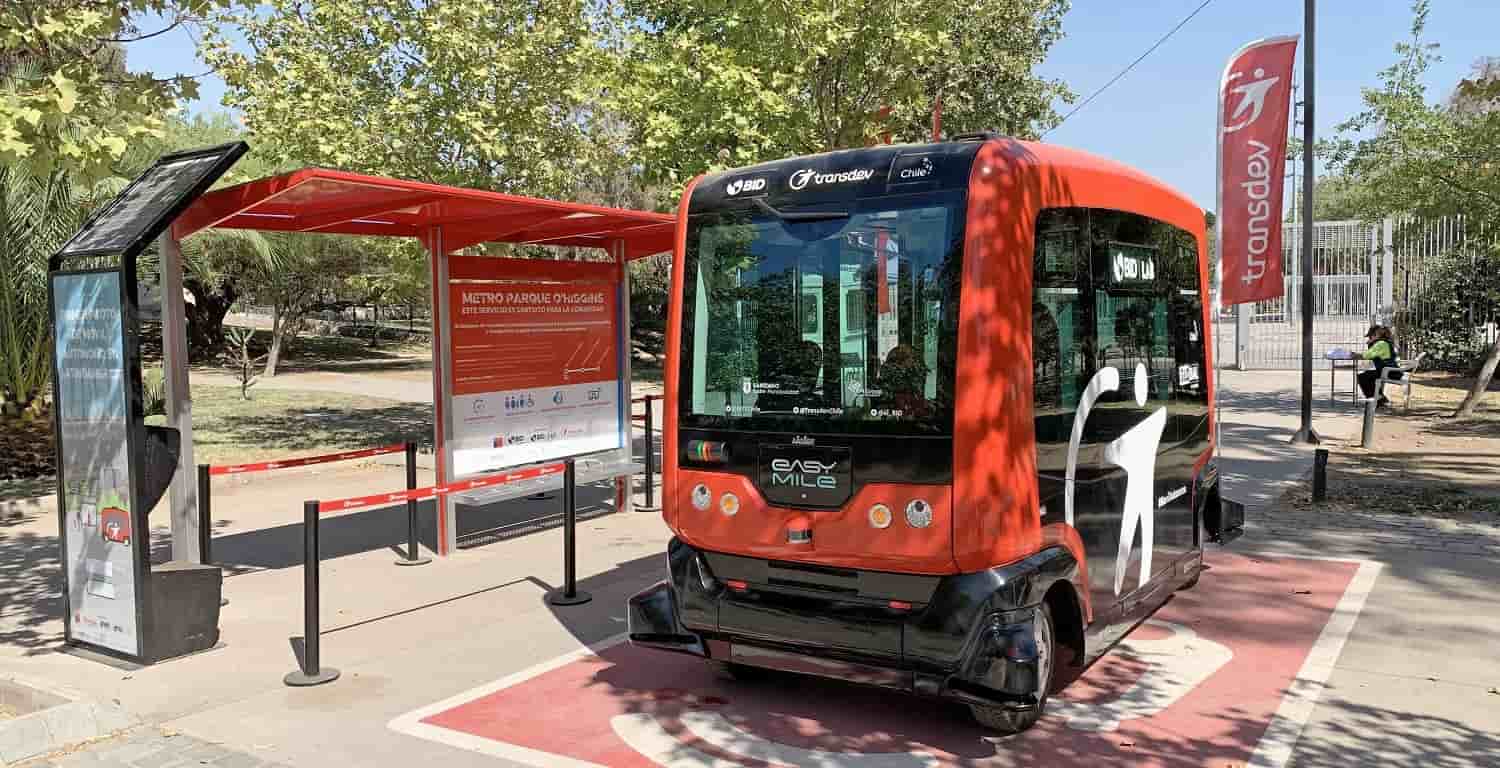I spent part of my fall semester at the Harvard Kennedy School working in a project called: Policy Development Field Lab: Autonomous Vehicles, with Professor Mark Fagan. During this field lab, we worked with the City of Boston, more specifically with the Department of New Urban Mechanics, to design potential scenarios for regulating Autonomous Vehicles (AVs) in its various dimensions: including the commercial adoption of AVs by transportation companies or individuals, the technical and safety aspects and the impact on congestions and emissions; and revenue generation for the City of Boston.
The policy lab experience has been extremely valuable and helped me to shape my vision, especially in the challenges of adapting these learnings on regulating disruptive technologies in developing countries.
It can take many years for AVs to become a reality in our cities, however, this exercise is worth for any policymaker process regarding disruptive technologies that are already present in our day to day lives. Thinking about regulations on the frontier of new technologies is a great way to expand our thinking, anticipate potential incentives or interventions governments must make, and test and adapt our policymaking process.
Disruptive technologies and the challenge of regulation
During the past years, I have witnessed many governments (at the federal, state, or municipal level) struggling to respond to increasing pressure that new technologies are creating. Especially in the field of transportation and particularly in large urban centers. The Transport Network Companies (TNCs) like Uber and Lyft, electric scooters or motorized bikes, drones and other innovative mobility solutions are flooding the space of large urban centers, in many cases contributing to solving some critical bottlenecks in mobility. In other cases, creating externalities that are forcing regulators to respond.
Some of the frameworks we used in our policy lab were essential for me to understand the common mistake policymakers and regulators make when facing new technologies, one of the most valuable insights was the understanding of different strategies regulators can apply when faced with new technologies[1]:
- Blocking: a conservative approach, preserving existing business models and blocking new initiatives (ex: the debate taxis vs. TNCs). This approach curbs innovations.
- Free Pass: ‘Let it go”, when the regulator allows the latest technologies and the existing business model compete freely. This strategy provides incentive for innovation but has many risks as it can be harder to regulate after the fact.
- Old Regulation: Allow the technology to enter but following the current rules. This can work but can also curb innovation.
- New Regulation: Design new regulations rethinking the business models and the dynamic of these technologies as public service. Involves rethinking existing and future regulations to adapt the disruptions of the new technology.
My main takeaway from here is that different contexts and technologies will require different approaches. But it is never too soon to start. In the case of AVs, because of the safety issues and the significant implications on urban mobility, probably the “New Regulation” approach would fit better.
During the exercise with the City of Boston we identified some opportunities for AVs that can solve some structural problems in transportation:
- charge per use of the infrastructure can help solve part of problem of lack of funding in infrastructure.
- actively manage the performance of the operation with real data to increase efficiency and use of the infrastructure.
- tackle equity issues in a more bond way so technology is not another driver of inequality
The reality in Developing Countries
The upcoming of new technologies may represent a leapfrog to improve urban mobility in major urban areas like Sao Paulo, Buenos Aires, or Santiago. However, they can bring new challenges to an already crowded agenda of policymakers in these cities.
Some major cities in developing countries struggled to respond to the aggressive entry of the TNC companies. Some countries are already looking at AVs as a potential for a leapfrog in urban mobility, specially in terms of reducing accidents. Chile, for example, has tested, jointly with IDB, the first AV for passengers in Latin America in late 2019 in Santiago[2].
Some reflections that I make on the challenges in our Region are:
- The time to think ahead and anticipate policies is not always present in the agenda of policymakers in developing countries. Other pressing issues dominate over it.
- Many public officials do not have the incentive or the institutional capacities to make the required changes.
- The private sector understands this gap but cannot wait and will continue moving in its own pace.
- The process of designing policies is not yet well structured or evidence based.
To break these barriers will require vision from policymakers, political and technical alliances. Also will require evidences that show how innovation can drive development. It is hard but not impossible! IDB is working with governments in the Region to do just that.
The future has arrived, and with the exponential evolution of technologies, mainly in the transportation space; the gap between markets, users, and public policy might always exist. Some key lessons learned from my exercise is that if we continue the effort of reinventing the way of doing public policy, we can catch up, or at least respond in a better way. If we do this right, we have more chances that the benefit will be given for those who are the final intended beneficiaries: the population.
[1] Biber, Eric, Sarah E. Light, J. B. Ruhl, and James E. Salzman. “Regulating Business Innovation as Policy Disruption: From the Model T to Airbnb.” SSRN Scholarly Paper. Rochester, NY: Social Science Research Network, April 12, 2017. https://papers.ssrn.com/abstract=2951919.
[2] InvestChile. “First Autonomous Vehicle for Passengers to Be Tested in Chile.” Accessed March 6, 2020. http://blog.investchile.gob.cl/first-autonomous-vehicle-for-passengers-to-be-tested-in-chile.




Leave a Reply